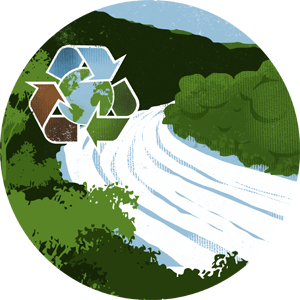| Monday |
7.23
(13:20-15:20) |
| |
Learning Objectives (as Students) |
Learning Objectives (as Teachers) |
| |
- Identify and discuss fundamental vocabulary
- Outline rubric
- Carry out extemporaneous discussion
|
- Coordinate group work by discipline
- Parse literatuture sources
- Explain plagiarism and its effect on the mission of the university
|
| |
Agenda |
| 1st hour |
- Important Concepts from Last Week
- Learning Objectives: continuum of complexity
- Thinking, lower-order & higher-order
- Factual knowledge
- Conceptual knowledge
- Procedural knowledge
- Metacognitive understanding
- Cognitive Process Dimension
- Remember
- Understand
- Apply
- Analyze
- Evaluate
- Create
- Pedagogy
- Definitions: Etymology
- Dynamic Interaction
- Intro- vs. extrovert
- Pecha Kucha or Ignite (presentation style)
- Student-centered teaching
- Group Work
- Think, pair, share
- Scribe
- Interdisciplinarity
- Lesson Plan(s); lesson planning
- Beginning: Introduce learning objectives
- Middle: Class content
- End: Reiterate learning objectives
- Syllabus
- Elements
- Course Title
- Contact information
- Course description
- Learning objectives (outcomes)
- Grading structure
- Administrative details
| Group I |
Group II |
Group III |
Group IV |
Group V |
Hui
Mack
Thunder
Lucky
Chunying |
Fangchao
Ella
Kevin
Haitao |
Dengfeng
Stephen
Chou
Wang
Lee |
Lin
Angel
Nina
Echo
|
Luke
Larry
Richard
Jenny
Young |
Directions:
- Arrange yourselves into the groups above.
- Working entirely in English, identify five words/phrases of vocabulary fundamental to the article (approx. 3-5 mins).
|
Reading assignment: "Green vs. Sustainability:
How they Differ and Why it Matters" (only body of article)
- What distinguishes a green revolution from a genuine sustainability revolution? (From Semantics to Enlightenment)
- green label
- green party
- low-hanging fruit
- lip-service
- less unsustainable
- paliatives
- "clean coal"
- Sustainability
- sustainable development
- sustainability rubric
- radical (going to the roots)
- putative sustainability
- triple bottom line; sustainability tripod
- "all three legs"
- economic vitality
- environmental health
- social equity (and fairness)
- recylcling, "upcycling"
- How is this distinction helpful to the creation of a sustainability rubric?
- Is green fundamentally distinct from sustainability?
- What is the purpose of a rubric?
- Why is sustainability at once attractive and confusing?
- What is
- "environmentalism"
- "smart growth"
- "weak sustainability"
- "transitional sustainability"
- LEED (Leadership in Energy and Environmental Design standards)
- "strong sustainability"
- "surpasses meliorist and tendentious definitions"
- "existentially realized strong sustainability
- "politics is the ineluctable field of struggle"
- appropriate scale: city region
- theory and practice
- "sustainability theorizing and urban regime and growth coalition
|
| 2nd hour |
What is the silo effect?
- Wikipedia Definition:
- "An information silo, or a group of such silos, is an insular management system in which one information system or subsystem is incapable of reciprocal operation with others that are, or should be, related. Thus information is not adequately shared but rather remains sequestered within each system or subsystem, figuratively trapped within a container like grain is trapped within a silo: there may be a lot of it, and it may be stacked quite high and freely available within those limits, but it has no effect outside those limits. Such data silos are proving to be an obstacle for businesses wishing to use data mining to make productive use of their data."
- Investopedia Definition:
- "Silo mentality is an attitude that is found in some organizations; it occurs when several departments or groups within an organization do not want to share information or knowledge with other individuals in the same organization. A silo mentality reduces the organization's efficiency and can contribute to a failing corporate culture."
Consider authorship. |
| Homework |
Primary: Review the following documents and come prepared to discuss formal structure of syllabi:
Secondary: Read quickly Model of Learning Objectives and come to class prepared to discuss the idea of continuum of complexity discussed in the article. |
| |
Round-table (15:30-18:30) |
![[Gnarled Roots]](../images/gnarledroots-thumb.jpg)
![[Gnarled Roots]](../images/gnarledroots-thumb.jpg)



